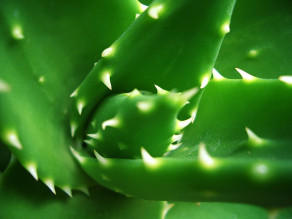New to Science: Microbes from Aloe vera, anchovies and the Red Sea
Posted on March 8, 2017 by Anand Jagatia
Before we get going, a quick bit of news. All of our journals, including IJSEM, have now moved to continuous publication! This means that papers are now published on a rolling basis as soon as they have been approved and finalised. Articles will still be collated into monthly issues, from which we’ll still be highlighting our favourites.

titanium22 on Flickr under CC BY-SA 2.0
And if you enjoy New to Science, check out our new ‘Microbe Profiles’ in the journal Microbiology. These are concise, free-to-read overviews of novel microbes written by leading microbiologists. You can read the first profile, focusing on E. coli O157:H7, here.
Now onto the new species for this month. A team from Thailand and Japan have
discovered a novel bacterium from the root of Aloe vera, which they name Achromobacter aloeverae. And elsewhere in the plant world, scientists from China haveisolated the actinobacterium Streptomyces capparidis from the fruits of the caper bush. These fruits are known as caper berries, while the capers themselves are actually edible flower buds.
In the Republic of Korea, microbiologists have found a new bacterial species living in traditional fermented anchovies (a food known as myeolchi-jeotgal). The species, Virgibacillus jeootgal, is able to survive in the food’s high salt concentrations, which can be up to 30% of the total mass!
Microbes that can withstand extremely salty environments are known as halophiles. These have been found in some of the most extreme conditions on the planet – such as the deep-sea brine pools of the Red Sea, which harbour very high salt and heavy metal concentrations. An international team of researchers report the discovery of a new archaeon from this place, and they name it Haloprofundus marisrubi.
Ocean saltwater is also the source of two more microbial species this month, both from the seas around Korea. One team caught a sea snail from which they isolated the novel bacterium Polirabacter vadi, while another collected a mussel and isolated the new species Colwellia mytili.
Back in China, another team have discovered a new bacterial species from a rare earth mine, which they name Kibdelosporangium metalli. Lastly, a group of Portuguese and French researchers have isolated the species Citrobacter europaeus. Two strains were recovered from rather different environments – well water and human faeces.
The full papers describing these species are available to journal subscribers, but the abstracts are free to read. Articles can also purchased individually with the pay-per-view option.
